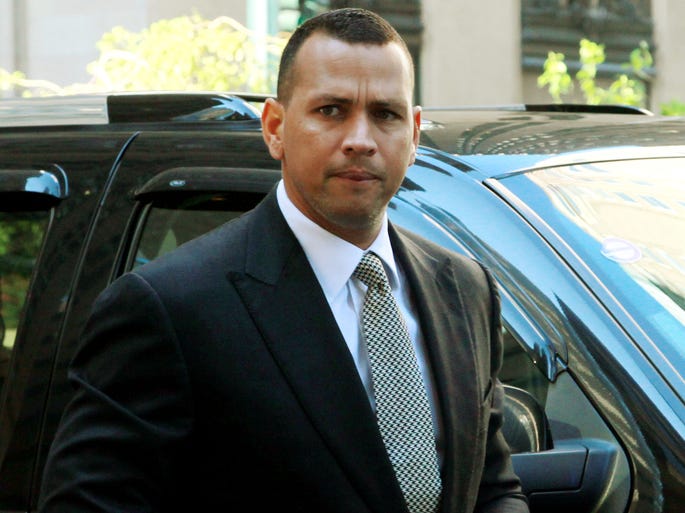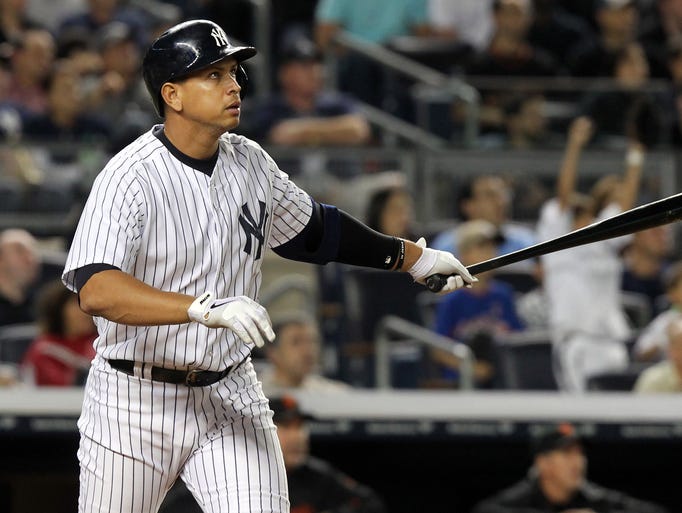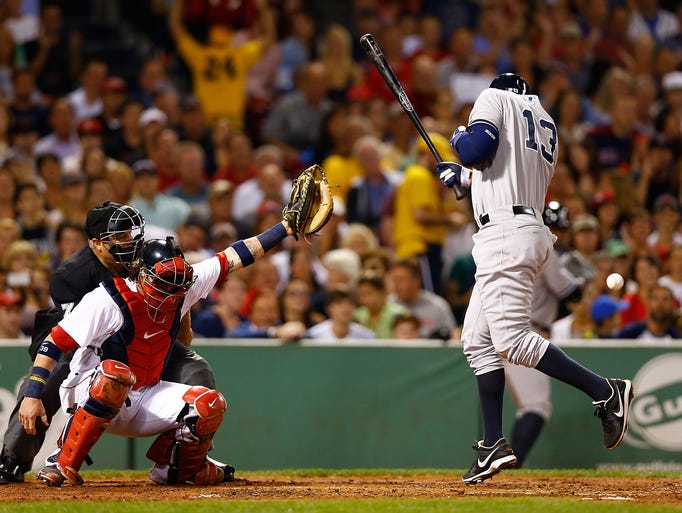Jorge L. Ortiz, USA TODAY Sports

MLB COO Rob Manfred talks with 60 Minutes reporter Steve Pelley in a sequence that aired Sunday.
Major League Baseball and the players association, which previously had maintained a tone of respect and cooperation through the messy Alex Rodriguez ordeal, appear ready to get down into the muck with him
Both organizations issued critical statements about each other today regarding an appearance by MLB Chief Operating Officer Rob Manfred and by Biogenesis founder Tony Bosch in the news program "60 Minutes.''
In the show, Bosch details the extent of A-Rod's involvement with performance-enhancing drugs and says he shot the New York Yankees third baseman with steroids and instructed him on how to avoid detection.
In a statement released after the arbitrator's ruling was announced, Rodriguez called the evidence against him "false and unreliable.''
Manfred appears on "60 Minutes'' defending the steps MLB took to punish Rodriguez for his involvement with Biogenesis, the since-shuttered clinic accused of dispensing PEDs to players. Those steps included buying Biogenesis documents.
NIGHTENGALE: A-Rod's spotlight has dimmed for good
On Saturday, arbitrator Fredric Horowitz upheld most of MLB's suspension of Rodriguez, reducing it from 211 games to 162, meaning he'll be banned for the 2014 season and postseason. Rodriguez has vowed to take his case to federal court.
The players union, which on Saturday said it disagreed with Horowitz's decision but recognized it as final and binding, was incensed that Manfred and Bosch would take their case to the news media. Other juicy bits to come out in the two-part "60 Minutes'' segment include Manfred's belief that Rodriguez's camp threatened Bosch, and Bosch saying A-Rod would take testosterone lozenges just before games.
"It is unfortunate that Major League Baseball apparently lacks faith in the integrity and finality of the arbitrator's decision and our Joint Drug Agreement, such that it could not resist the temptation to publicly pile-on against Alex Rodriguez,'' the MLBPA statement said. "It is equally troubling that the MLB-appointed Panel Arbitrator will himself be appearing in the "60 Minutes" segment, and that Tony Bosch, MLB's principal witness, is appearing on the program with MLB's blessing.
"MLB's post-decision rush to the media is inconsistent with our collectively-bargained arbitration process, in general, as well as the confidentiality and credibility of the Joint Drug Agreement, in particular. After learning of tonight's "60 Minutes" segment, Players have expressed anger over, among other things, MLB's inability to let the result of yesterday's decision speak for itself. As a result, the Players Association is considering all legal options available to remedy any breaches committed by MLB.''
A little over an hour later, MLB fired off its own PR shot.
"We have notified the Major League Baseball Players Association on numerous occasions that we intended to respond to all of the attacks on the integrity of our Joint Drug Program,'' baseball's statement said. "Those attacks continued yet again yesterday with Mr. Rodriguez's statement. Out of respect to the grievance process and at the request of the MLBPA, we waited until a decision was rendered to make our response.
"It is ironic that the MLBPA is complaining about MLB's participation in this program given that Mr. Rodriguez's lawyer is also participating in the show.
"As to Mr. Bosch's appearance, he is not controlled by us and is entitled to speak however he chooses about his interactions with Mr. Rodriguez."
In one of the more compelling exchanges, Manfred tells reporter Steve Pelley that Bosch feared for his life because of threats made by an associate of Rodriguez's.
"The individual that was of greatest concern to Mr. Bosch,' Manfred said, "was a known associate of Mr. Rodriguez. ... I don't know what Mr. Rodriguez knew. I know that the individual involved has been an associate of Mr. Rodriguez for some time."
Bosch described a scene in which he drew vials of blood from Rodriguez in the bathroom stall of a Miami nightclub after Rodriguez missed an appointment to have his blood tested before going on Bosch's doping plan.
He also cited text messages Rodriguez sent before games asking which substances to take, both for maximum performance and also to avert detection should he be faced with a postgame drug test.
Rodriguez declined to appear on the show, though he was represented by one of his attorneys, Joseph Tacopina.
The jousting both on air and via press release runs counter to the current air of cooperation between MLB and its players' association.
It once was a strained relationship led to eight work stoppages between the early 1970s and mid-1990s, including the 1994 strike that forced the cancellation of the World Series.
But the parties established a much better rapport in recent years, especially after Michael Weiner succeeded Donald Fehr as executive director late in 2009. Weiner died of brain cancer in November and was replaced by former player Tony Clark.
The union's new leadership is now facing its first big challenge with the Rodriguez case, and it has the potential to become a wedge between the players and MLB. The current collective bargaining agreement expires Dec. 1, 2016.






0 comments:
Post a Comment